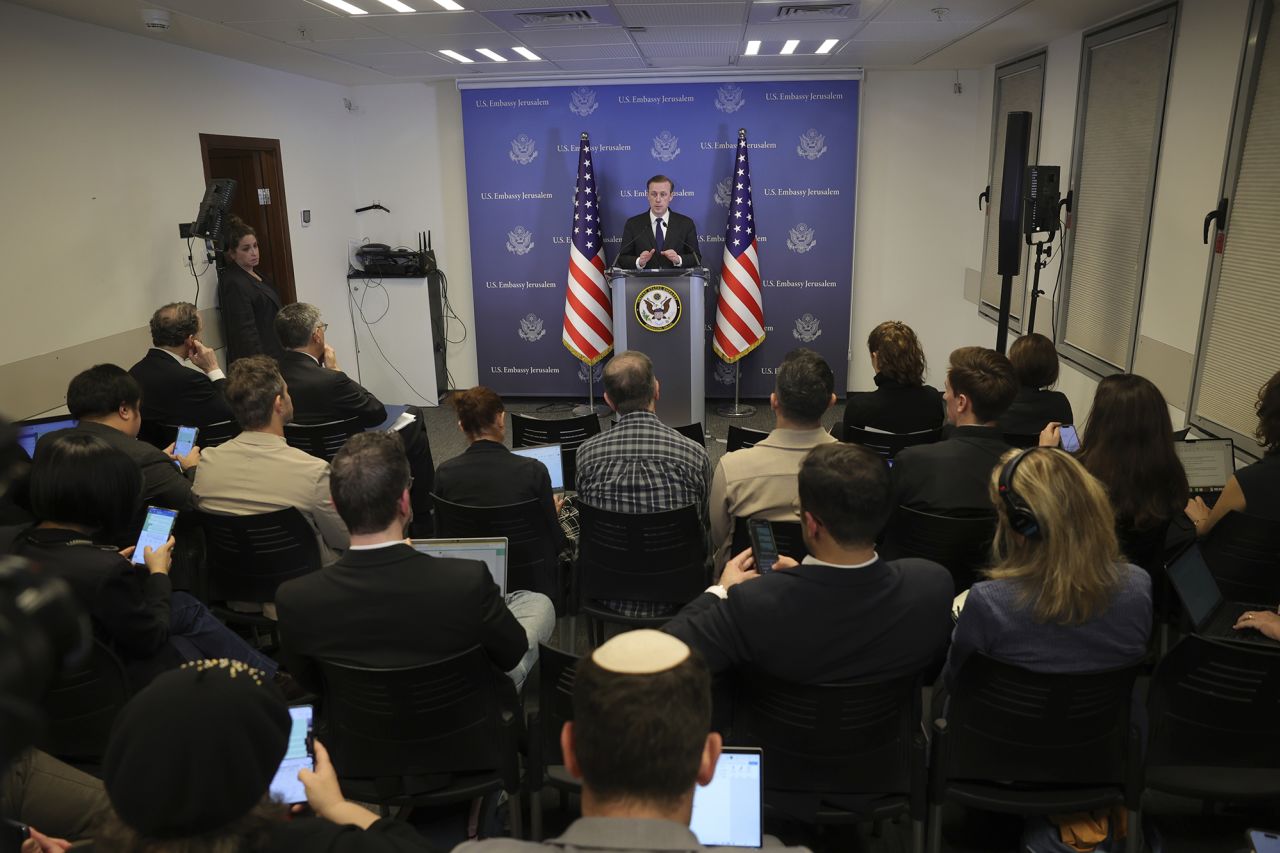National Security Adviser Jake Sullivan said Tuesday that he’s seen “more alignment” with incoming National Security Adviser Mike Waltz than he expected, telling political scientist Ian Bremmer: “Where we agree is on many of the fundamentals here — and especially on the point that we should not let anyone take advantage of the United States during this time of transition.”
Sullivan said the Biden Administration “has been subject to criticism from President Trump’s team,” while also acknowledging that the Biden Administration has criticized Trump.
“So, it’s not like we see everything the same way,” Sullivan said. “But at this moment on big ticket items, when we need some degree of smoothness and continuity in the handoff from one administration to the next, we, I think — both the outgoing and incoming administration — see the bigger picture, and that’s really important.”
Biden’s national security adviser, who was participating in an interview with Bremmer as part of a discussion on the state of national security at the 92nd Street Y in New York Tuesday, acknowledged that both he and Waltz have recognized that the upcoming presidential transition period could put the nation’s national security at risk, “and so the imperative on us both, the outgoing Biden administration, the incoming Trump administration, has to be to lash up more tightly than is typical, to spend more time together than is typical, and to try to ensure we are sending a common clear message to both friends and adversaries in the Middle East, and we have endeavored to do that over the last few weeks.”
Sullivan and Waltz first spoke last month, shortly after Trump named the Republican congressman as his pick for NSA. After, in an interview with Fox News, Waltz said the current administration and the Trump transition team “are hand in glove. We are one team with the United States in this transition.”
Still, Sullivan said Tuesday, there would likely be plenty of room for disagreement in the coming years as a second Trump administration begins to enact its own foreign policy vision.

















